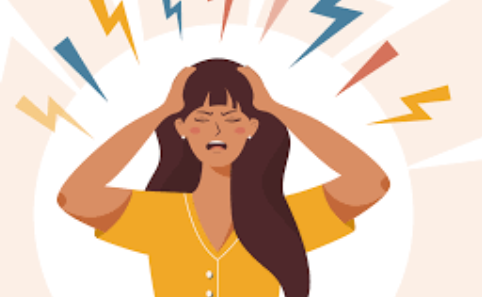Symptoms of Anxiety and How Anxiety Medications
Anxiety is a normal and natural response to stress, but when anxiety becomes excessive, it can be a debilitating condition that affects a person's daily life. The symptoms of anxiety can vary from person to person, but generally, they include feelings of fear, worry, and apprehension, which are often accompanied by physical symptoms such as rapid heartbeat, sweating, trembling, and muscle tension. In this article, we will discuss the common symptoms of anxiety and how anxiety medications can help.
 |
| Symptoms of anxiety |
Symptoms of Anxiety:
1. Excessive worrying: A person with anxiety may experience constant and excessive worrying about everyday things.
2. Restlessness: Anxiety can cause a person to feel restless and unable to relax.
3. Fatigue: People with anxiety may feel tired or exhausted even when they haven't exerted themselves physically.
4. Irritability: Anxiety can make a person irritable and more prone to mood swings.
5. Muscle tension: Anxiety can cause muscle tension, leading to headaches, backaches, and other types of pain.
6. Difficulty concentrating: Anxiety can make it difficult for a person to focus or concentrate on tasks.
7. Panic attacks: Panic attacks are sudden episodes of intense fear or anxiety that can include symptoms such as chest pain, sweating, shaking, and a feeling of impending doom.
How about : You are dying of prostate cancer
Anxiety Medications:
Anxiety medications are commonly used to treat the symptoms of anxiety. They work by targeting the chemicals in the brain that contribute to anxiety. There are several types of anxiety medications, including benzodiazepines, antidepressants, and beta-blockers.
Benzodiazepines: Benzodiazepines are a class of drugs that are commonly used to treat anxiety. They work by slowing down the activity of the central nervous system, which can help to reduce anxiety symptoms. Examples of benzodiazepines include Valium, Xanax, and Klonopin.
Antidepressants: Antidepressants are a class of drugs that are commonly used to treat depression, but they can also be effective in treating anxiety. They work by balancing the levels of certain chemicals in the brain that contribute to anxiety. Examples of antidepressants that are commonly used to treat anxiety include Prozac, Zoloft, and Lexapro.
Beta-blockers: Beta-blockers are a class of drugs that are commonly used to treat high blood pressure, but they can also be effective in treating anxiety. They work by blocking the effects of adrenaline, which can help to reduce anxiety symptoms. Examples of beta-blockers that are commonly used to treat anxiety include Inderal and Tenormin.
Conclusion:
Anxiety can be a debilitating condition that affects a person's daily life. The symptoms of anxiety can vary from person to person, but they generally include feelings of fear, worry, and apprehension, which are often accompanied by physical symptoms such as rapid heartbeat, sweating, trembling, and muscle tension. Anxiety medications can be effective in treating the symptoms of anxiety, but they should only be used under the guidance of a healthcare professional. It is important to note that anxiety medications can have side effects and may not be suitable for everyone. If you are experiencing symptoms of anxiety, it is important to speak with a healthcare professional to determine the best course of treatment for you. Additionally, it is important to use a plagiarism checker to ensure that your work is original and not copied from other sources.
Read more: Urology Health and Makanan untuk mengatasi disfungsi ereksi pria.










